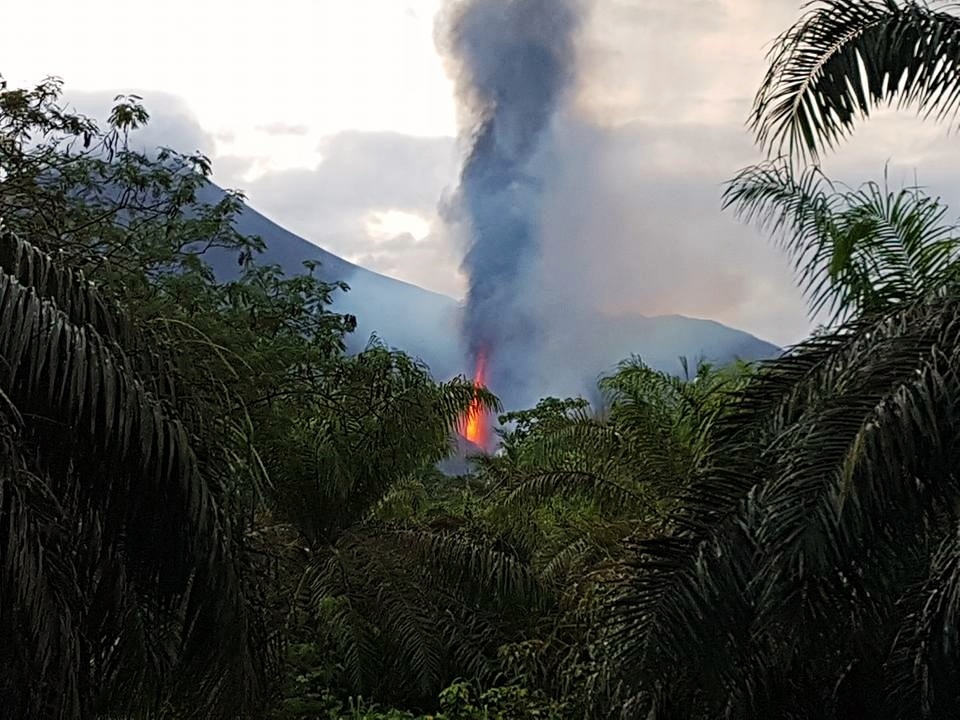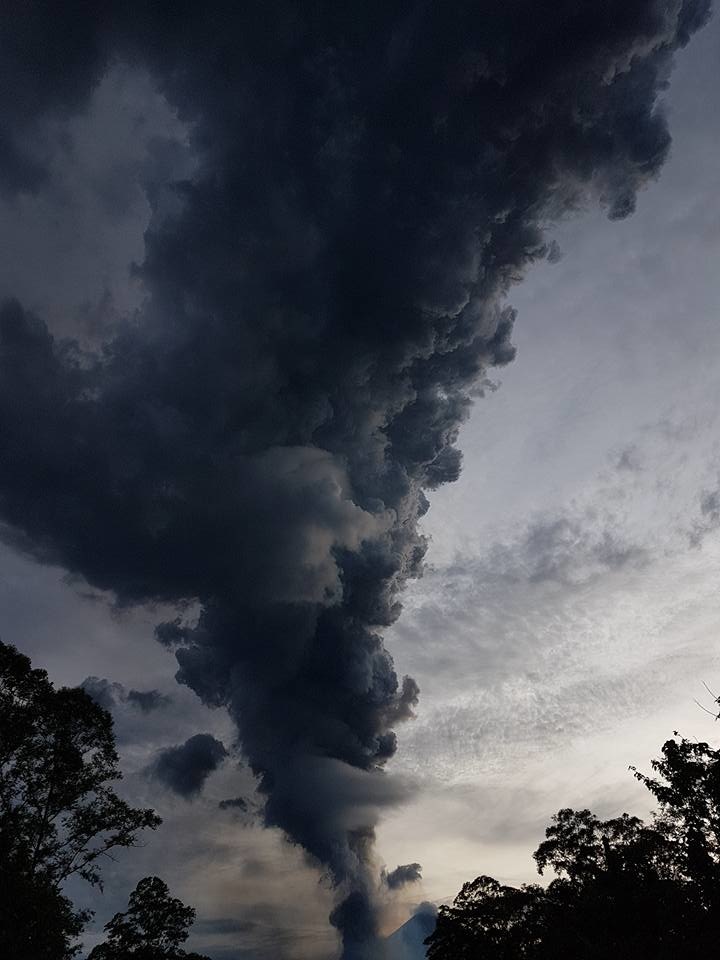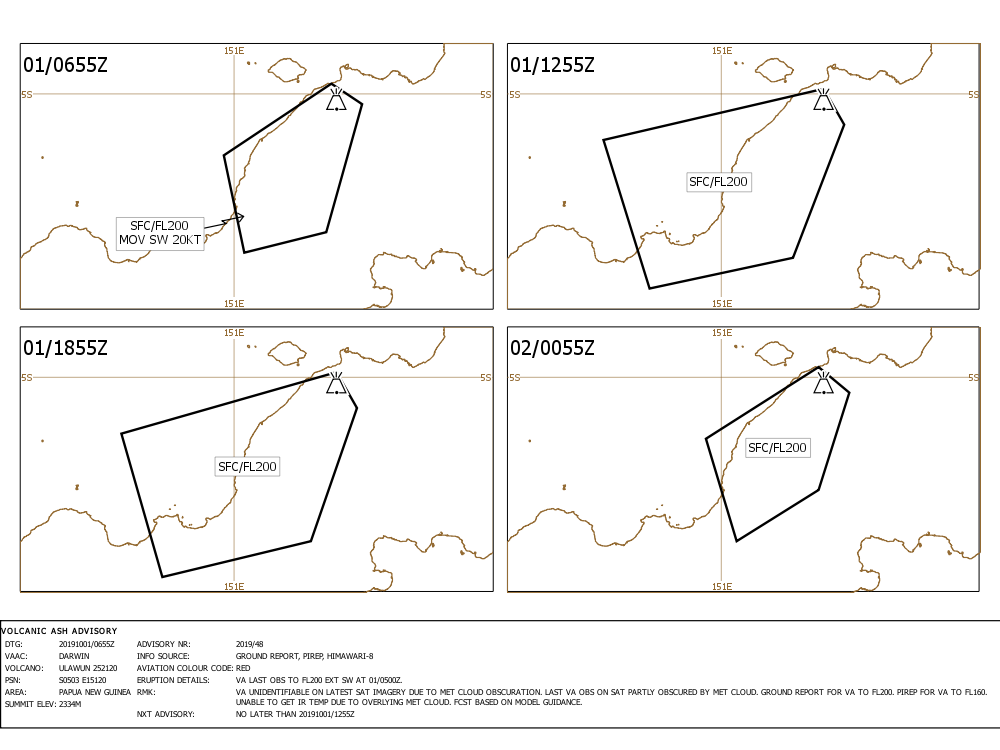Papua New Guinea’s volatile Ulawun volcano erupted early Tuesday, October 1, sending a column of red lava shooting up into the sky and forcing the evacuation of recently returned residents.
Ashfall could affect Kimbe, the capital of West New Britain, while regular earthquakes are also occurring near the volcano.

Seismic activity started at midday on Monday, September 30, before the volcano erupted at about 4:30am Tuesday, according to Rabaul Volcano Observatory assistant director Ima Itikarai.
The eruption was noiseless and happened in the dark just before dawn. It was visible with a distinct shard (of) red incandescent glow shooting up less than 100 metres from the base.
As the sun rose, billowing clouds of grey ash could be seen rising several hundred meters into the sky, while residents could hear the noise of gushing gas and flowing lava.

Ashfalls could affect Kimbe, the nearby capital of West New Britain province, while regular earthquakes are also occurring in the vicinity of the volcano.
Mount Ulawun, situated on the remote Bismarck Archipelago chain, displaced between 7,000 and 13,000 people from their homes when it last erupted in June 2019.

While most people affected by the previous eruption had remained at evacuation centers, an official with the West New Britain Disaster Office said a number who had returned to their homes and gardens at the base of the volcano had to be evacuated again.
The Ulawun volcano is one of the world’s most hazardous, featuring on a list of 16 “Decade Volcanoes” targeted for research because they pose a significant risk of large, violent eruptions. [Rappler, EarthofFire, ShérineFrance]











